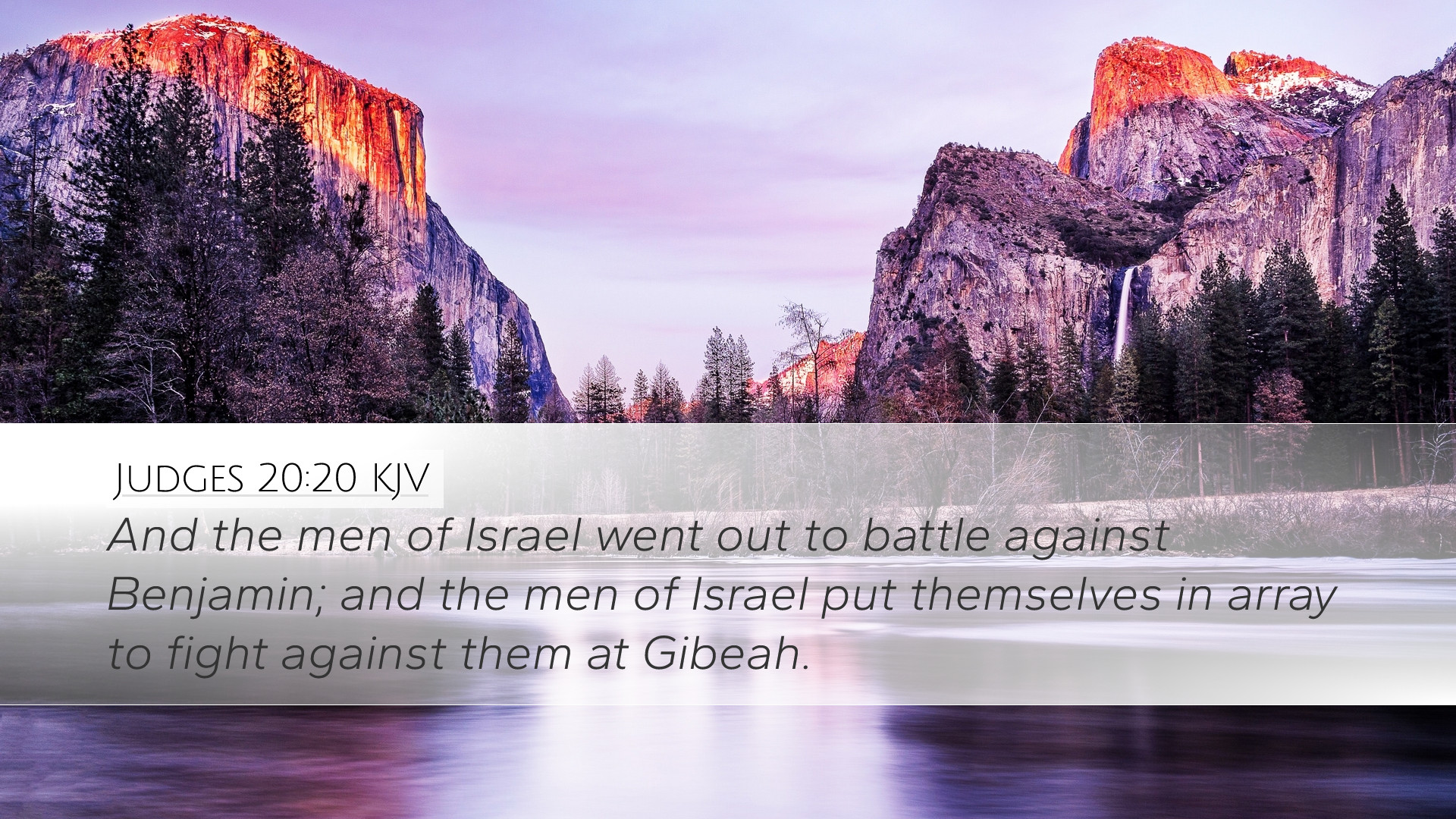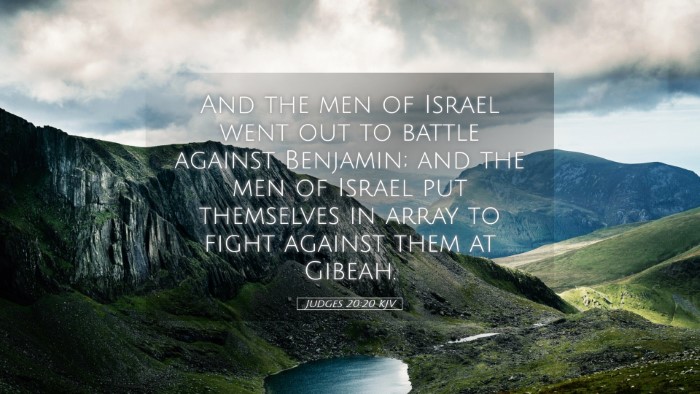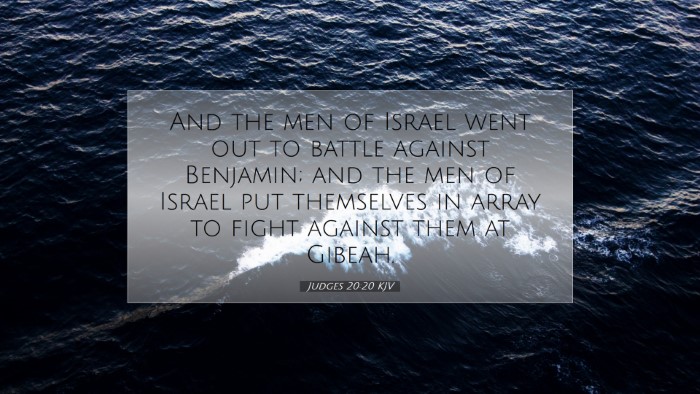Judges 20:20 - A Commentary
Judges 20:20 states: "And the men of Israel went out to battle against Benjamin; and the men of Israel put themselves in array to fight against them at Gibeah." This verse marks a significant moment in Israel's history where conflict arises between the tribes. The implications of this battle and the formation of the Israelite army are deeply rooted in the moral and spiritual landscape of the time.
Context of the Passage
To understand this verse, one must appreciate the context of the events leading up to it. The nation of Israel was at a crisis point, having lost its unified leadership after the death of Joshua. The moral decay within the society was evident, and the lack of faithfulness to God's commandments led to a series of tragic incidents, including the horrific crime committed in Gibeah of Benjamin. The tribes congregated to address the injustice incurred upon a Levite and his concubine, which serves as the catalyst for the conflict.
Commentary Insights
Matthew Henry's Perspective
Matthew Henry highlights the gravity of this conflict as a demonstration of the Israelites' responsibility to justice and righteousness. He notes that their unified approach to battle represents not only a commitment to avenge an injustice but also an attempt to uphold national integrity.
Henry reflects on how the men of Israel “went out” emphasizes their proactive stance. This suggests that the resolution of moral failing requires action. He remarks on the importance of collective responsibility and warns against complacency in the face of wrongdoing by fellow Israelites.
Albert Barnes' Analysis
Albert Barnes elaborates on the setting of the battle against Gibeah, emphasizing the consultations among the tribes before engaging in warfare. Barnes explains that this was not a haphazard attack but a deliberate effort to seek justice for a grievous act committed against an Israelite. The strategic formation of the soldiers is indicative of their sense of purpose, as they were not only fighting against Benjamin but also addressing the moral collapse that had afflicted the tribe and the nation.
Furthermore, Barnes observes that the alignment of the Israelite forces showcases their unity in a vital cause. He explores the implications of this battle, suggesting that it was a turning point that not only aimed to resolve a specific injustice but also sought to restore fidelity to God’s Law among the tribes.
Adam Clarke's Commentary
Adam Clarke provides a detailed historical and cultural analysis of the events leading to the confrontation. Clarke contextualizes Gibeah as a stronghold of wickedness, harboring attitudes and behaviors that stood starkly against God's commands. He explains that the decision to confront Benjamin was a last resort after appeals for justice went unheeded. Clarke emphasizes the importance of accountability and the need for the community to withdraw fellowship from those who persist in sin.
Clarke also mentions the significance of "putting themselves in array to fight," which carries military connotations but also indicates spiritual readiness. The posture of the Israelites implies a readiness to take not just physical action but also a spiritual stand against evil.
Theological Implications
Judges 20:20 raises crucial theological questions about justice, community accountability, and the nature of warfare in the Old Testament context. It challenges modern readers and theologians to reflect on how communities today handle sin within their midst. The congregation of Israel serves as a metaphor for the church – a body called to address wrongdoing within its ranks while striving for unity and adherence to divine principles.
The verse compels a discussion about the moral imperatives that should drive communities to seek justice. The actions of the Israelites serve as a reminder that while we are called to love one another, we are also tasked with maintaining standards of righteousness. This balance is critical for the health of any spiritual community.
Practical Application
- Community Responsibility: This passage reminds pastors and church leaders of the importance of fostering a culture where accountability is valued. The community must not shy away from addressing sin but must do so with love and justice.
- Preparation for Conflict: In light of this verse, believers are encouraged to prepare themselves both spiritually and physically (in metaphorical terms) to stand against injustice and moral decay, ensuring they are aligned with God’s will.
- Unity in Purpose: The arraying of the men of Israel teaches the necessity of unity among believers. Strength lies in collective action, thus emphasizing the importance of working together in faith to correct wrongs.
Final Reflections
Judges 20:20 encapsulates the essence of moral struggle within the nation of Israel. It serves as both a historical account and a theological reflection on the necessity of justice, community integrity, and the commitment to uphold God's standards amidst societal decay. This verse invites us to consider how we respond to issues within our own communities and the profound responsibilities we bear as representatives of God’s kingdom.


